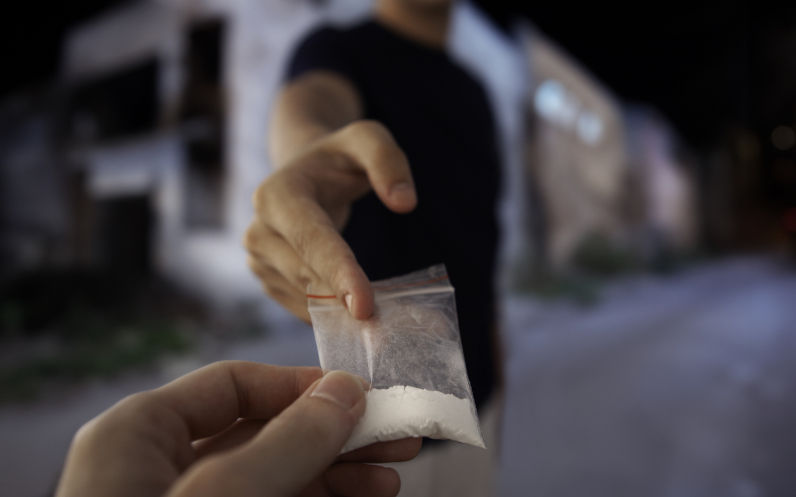The NSW Drug Summit in 1999 produced mostly modest outcomes, sidestepping some difficult but important issues. The prospects now for beneficial change should be better with the evidence gathered in the last 25 years – but are they?
Drug use
In the intervening decades illicit drug use has increased, drugs have become more readily available, stronger and cheaper. Prohibition has comprehensively failed. Reforms to the treatment of the issue have been intermittent, piecemeal and uneven. Drug use is not going away and we need to find the least harmful ways to live with it.
Drug Summit Mark II
It has been announced that there will be a Drug Summit in NSW in 2024. It is said that it will include policymakers, healthcare professionals, community leaders and individuals with lived experience discussing innovative strategies for tackling drug-related issues.
The Co-chairs are to be Carmel Tebbutt, former NSW Deputy Premier and CEO of Odyssey House, and John Brogden AM, former NSW Leader of the Opposition and President of LifeLine International.
It will sit in Griffith on 1 November 2024, Lismore on 4 November and Sydney on 4 and 5 December. Terms of Reference are being developed. They should include, at least, decriminalisation of involvement with drugs in quantities consistent with personal use, ways of removing criminal profits from the market, reducing harms to users and supports for problematic users. Issues of detail such as drug checking, strip searching, drug detection dogs and the special concerns of First Nations people and prisoners should be included.
One needs to ask why a Summit is needed, there being so much evidence already available and recommendations already made by competent bodies in Australia and elsewhere as to “what works” with drug use; but the Summit has been welcomed by campaigners and provides an opportunity to update information and for positions to be developed.
Drug Summit Mark I
The first Drug Summit was on 17-21 May 1999 at Parliament House in Sydney. It was prompted by various reported events indicating a need to “do something”. An impressive cast of knowledgeable speakers contributed. (I was DPP at the time, but was not invited.) The Premier’s resolution made by Parliament on 11 May 1999 tasked the Summit to (among many other matters):
- Examine existing approaches to the illicit drug problem and consider new ideas and new options in a bipartisan forum…
- Consider evidence regarding those strategies that work and those that do not…
The final communique from the Summit contained 172 resolutions. The most significant development to come from it was (after quite some argy-bargy) the establishment of the Medically Supervised Injection Centre (MSIC) at Kings Cross in 2001. It is still going and recording excellent benefits for injecting drug users and the community, including zero deaths. There should be more MSICs (there is only one other, in Victoria).
Ice inquiry
In more recent times $M10.8 was spent on the Special Commission of Inquiry into crystal methamphetamine and other amphetamine-type stimulants (the “Ice Inquiry”). The highly competent team involved, after statewide inquiry, consideration of national and international developments and with the support of experts, issued its Report in January 2020. It made 109 recommendations. The government immediately dismissed five of them and the report was ignored for nearly three years.
The rejected recommendations were:
- Decriminalisation of the use and possession for personal use of prohibited drugs (Recommendation 11)
- That drug consumption rooms [plural] be integrated with other services (Recommendation 52)
- Drug testing be made available, including a trial of drug testing at a music festival (Recommendation 53)
- That the use of drug detection dogs at music festivals be discontinued (Recommendation 80)
- That a pilot of a needle and syringe program be conducted in one or more custodial facilities (Recommendation 97)
In September 2022 the government responded to the report adopting 86 recommendations. Releasing the response the Premier said:
“Drugs have no place in our society”. That was as factually correct as the statement being made in the USA now: “Political violence has no place in our country”. In both cases statements of that kind stand in the way of dealing with the issue realistically.
Other inquiries
There have been many other inquiries into drugs in Australia, some well publicised and some under the radar. One of the latter (which may have been unintentional) was a project handed by the NSW Government to KPMG in 2022-23 and prompted by Recommendation 5 of the Ice Inquiry Report to develop a NSW Government Alcohol and Other Drug Strategy. The project ran its course, but perhaps the new government preferred the Drug Summit approach.
More prominently, a NSW Parliamentary Committee is presently inquiring into the impact of the regulatory framework for cannabis in NSW. It is to report by 8 April 2025.
Prospects
What are the prospects for the 2024 Drug Summit? Frankly, I’m not hopeful that significant, useful and lasting improvements will come from it; but I am used to disappointment and hope to be wrong again this time. The problem is politics, where re-election is the goal of (almost) all politicians. For reasons that remain obscure (at least to me), politicians collectively see themselves as the saviours of the people, required to legislate to protect people from themselves by separating them from some arbitrarily identified drugs by whatever means it takes. They think their electors expect them to do that – but they are wrong. Their electors expect them to keep them safe, to protect them from harm, not to add to harms by criminalising personal involvement with drugs and punishing them. Change requires legislation. The only way to get it is to convince a majority of the politicians that electors demand change – that they will not be electorally punished for supporting change. Electors need to make that clear and perhaps a Drug Summit will aid in that.
But with that mindset, politicians will be able easily to disregard the testimony of experts and reported findings and recommendations of a Drug Summit (as they did shamefully with the Ice Inquiry Report).
The Drug Summit may not be off to a dream start. It should be noted that in 2016 Co-chair John Brogden told the Sydney Morning Herald that pill testing “could be seen as government facilitation of drug use among non-dependant users”. Then again, Brogden supported the MSIC in 1999 against the party line. We can only hope that events such as this are opportunities for leaders to take evidence-based and principled positions against conventional lines, if necessary.
Here we meet an uncomfortable (for many) fact: that a huge proportion of illicit drug users are not dependant or addicted. They use by choice and unproblematically for the most part. They deserve to be heard as well. While boosting support services for problematic users is a laudable aim, many just want to have a lawful choice.
Other regimes
Other jurisdictions in Australia and internationally are taking different courses in relation to drugs. There is not space here to discuss them, but it is to be fondly hoped that the Drug Summit will receive evidence of these developments and draw the best lessons from them.
Only by doing so can we produce a sensible regime that drives criminal profits out of the drug scene and reduces harms to users and the community more broadly.
Nicholas Cowdery AO KC is a former Director of Public Prosecutions for NSW and a former President of the International Association of Prosecutors. He favours the controlled legalisation of drugs so as to drive criminal profits and consequent violence and criminality out of the market.

